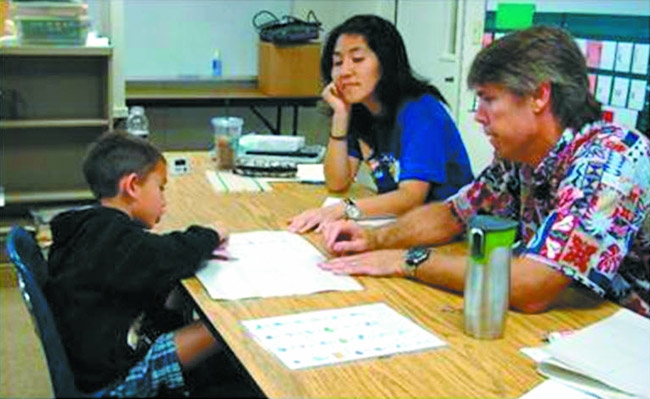Quality Teaching For Struggling Readers
By Margaret Higa, executive director, HIDA
No one is born knowing how to read – we all have to learn. We do this when our brain learns how to connect letters with sounds and put those sounds together in the right order. Then, we have to make these connections quick enough that we can form letters, words, paragraphs, and still give ourselves time to understand what it all means. In short, reading is a complex symphony of behavioral, cognitive, neurological and genetic processes that does not occur naturally. This is why great teaching is so important.
mw-pp-102313-hida-2
As many as one in five individuals demonstrate characteristics of dyslexia or other reading disabilities – as many as 272,000 people in Hawaii alone! Dyslexia has no connection to intelligence!
HIDA (Hawaii branch of the International Dyslexia Association) is a nonprofit that has been serving Hawaii since 1984. HIDA’s mission is to increase awareness of dyslexia in our community, provide support for dyslexics, families and educators, and improve literacy instruction for struggling readers.
People with dyslexia have powerful and healthy brains but they process language differently, and therefore often experience great difficulty reading, writing, spelling and pronouncing words. In fact, many dyslexics like Dr. Richard Kelley (Outrigger Enterprises Hawaii), local comedian Andy Bumatai, Richard Branson (founder of Virgin Group) and Steven Spielberg have succeeded in extraordinary ways.
Unfortunately, we know that children with dyslexia are “at risk” for many poor academic and socio-emotional outcomes if they are not provided the appropriate support. Students with dyslexia are disproportionately unemployed, juvenile offenders and in substance abuse treatment programs. There is no “cure” for dyslexia but with proper, research-validated instruction, children with dyslexia can learn to read, write and ultimately reach their potential.
One of HIDA’s ongoing projects is to provide literacy training for teachers so Hawaii schools have the research-validated methods required to teach reading to dyslexic students and other struggling readers.
HIDA’s programs are funded by grants, fundraising events, and donations from individuals and businesses – 100 percent of donations remain in Hawaii to support HIDA programs and initiatives.
For more information or to donate, visit dyslexia-hawaii.org or call 538-7007.
Hawaii charitable organizations may send requests for space in either Proof Positive or the free advertisement below to dchapman@midweek.com.






